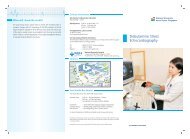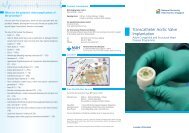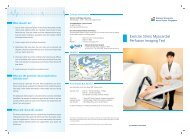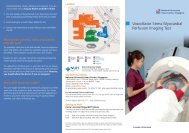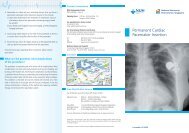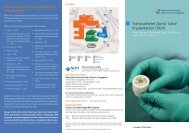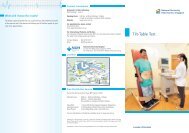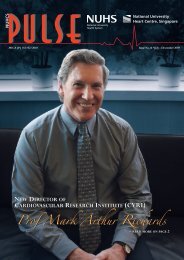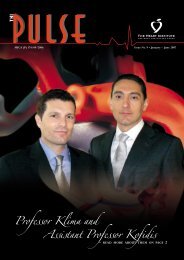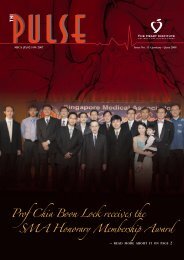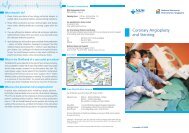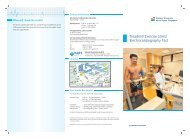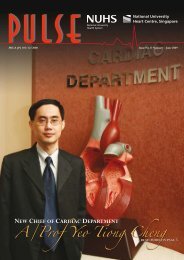2011 July - December - nuhcs
2011 July - December - nuhcs
2011 July - December - nuhcs
- No tags were found...
You also want an ePaper? Increase the reach of your titles
YUMPU automatically turns print PDFs into web optimized ePapers that Google loves.
24th-25th September <strong>2011</strong>Dr Mark ChanThe National Univesity Heart Centre, Singapore, togetherwith the Duke Cardiovascular Research Institute, USA, hostedSingapore’s first Antithrombotic Pharmacotherapeutics Symposiumfrom the 24th to 25th September <strong>2011</strong> at the new NationalUniversity Health System campus. International and local expertsupdated more than 250 doctors, nurses, pharmacists and industrydelegates on key clinical perspectives on the pharmacologicaltreatment of venous and arterial thrombosis.Antithrombotic therapy, comprising oral and injectableantiplatelet and anticoagulant agents, is the most widely prescribedclass of medications in clinical practice.The last 12 months have also seen a bumper crop of new drugstargetting the human platelet and coagulation system that havebegun an exciting new era of treatment options for thromboticdisorders.Drs Mark Chan and Chee Yen Lin, who co-chaired theconference, explains that there are two new revolutionary classesof antithrombotic therapy. The first belongs to the class of oralanticoagulants for prevention of stroke in atrial fibrillation, a verycommon disease of the elderly that can lead to debilitating strokesin as many as 10% of untreated patients. Warfarin, which has beenthe only useful drug for this condition for the last 5 decades,incurs a high risk of bleeding, including bleedinginto the brain, requires frequent blood tests andnecessitates strict adherence to dietary restrictions.Three new drugs, Rovaroxaban (Xarelto, Bayer),Dabigatran (Pradaxa, Boerhinger Ingelheim) andApixaban (Eliquis, Bristol Myers Squibb,) haveshown themselves to be as effective as warfarinin preventing strokes in atrial fibrillation but witha much lower risk of bleeding into the brain andwithout the need for regular monitoring blood tests.The second group of drugs belong to a class of drugs calledP2Y12 inhibitors. This class of drugs reduce the stickinessof platelets and prevent clogging of blood vessels after stentimplantation for a heart condition. For more than a decade, patientshad only one option in this drug class, clopidogrel. However, notall patients respond well to this drug and a failure to respond tothis drug can result in a rare but dreaded complication calledstent thrombosis in which a recently-implanted heart blood vesselstent clots suddenly and causes a major heart attack, frequentlyresuting in death. One reason for this poor response is the presenceof a genetic abnormality in the CYP2C19 system that convertsclopidogrel to the active form.Patients with one or more abnormal forms of this gene cannotgenerate the active compound as quickly as normal individuals.As such, their platelets remain more sticky and more prone toclogging up stents implanted in blood vessels supplying the heart.In a local study conducted on 400 patients seeking treatmentat the National University Hospital Dr Chan and colleagues showthat this abnormal gene is present in more than 40% of Indianpatients and close of 60% of Chinese and Malay patients. Thesefindings were presented at the International Society of Thrombosisand Haemostasis meeting in Kyoto, Japan this <strong>July</strong>.NUHCS PULSE | 18



